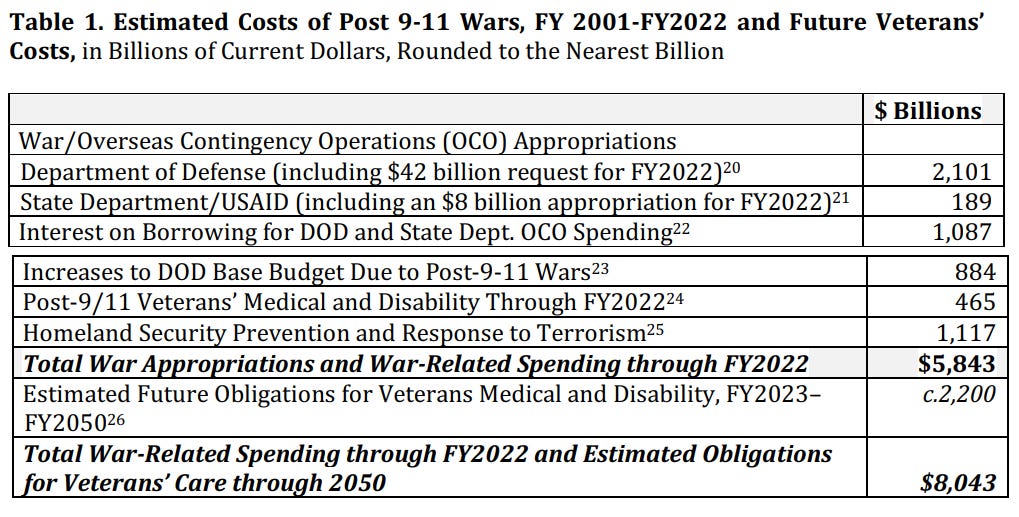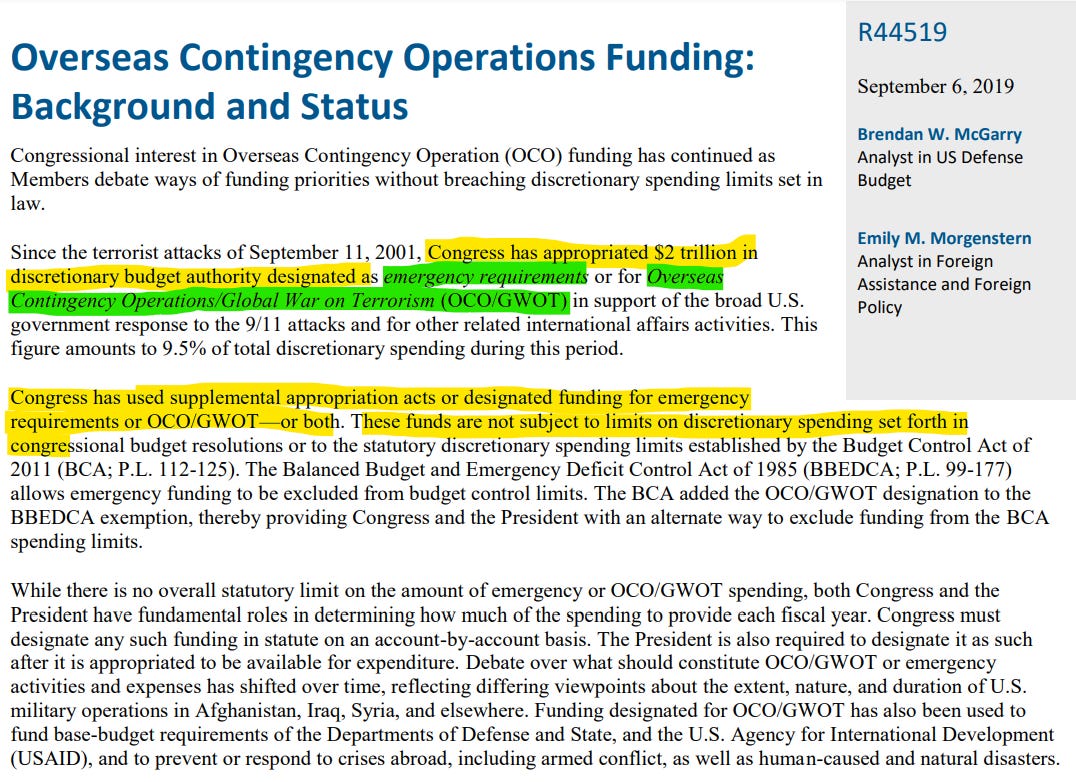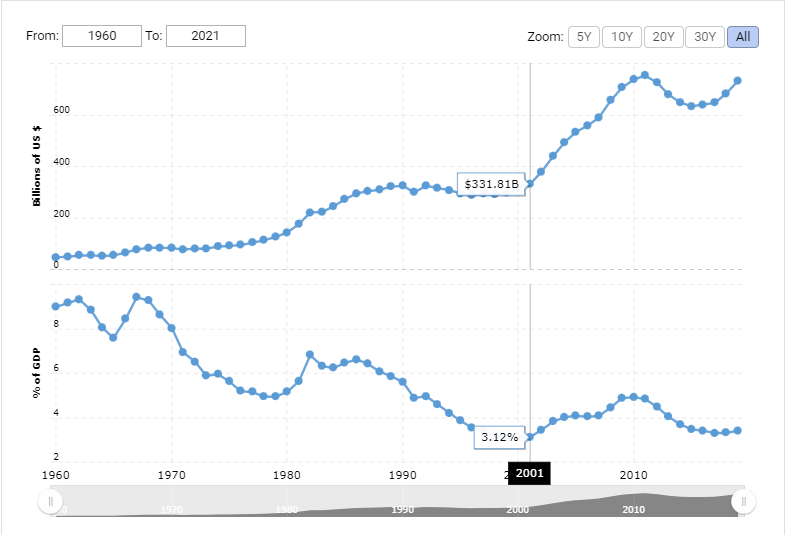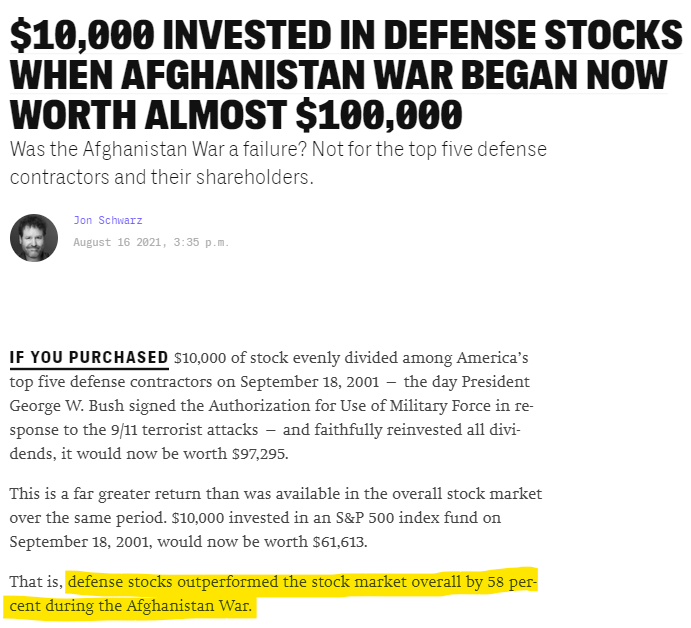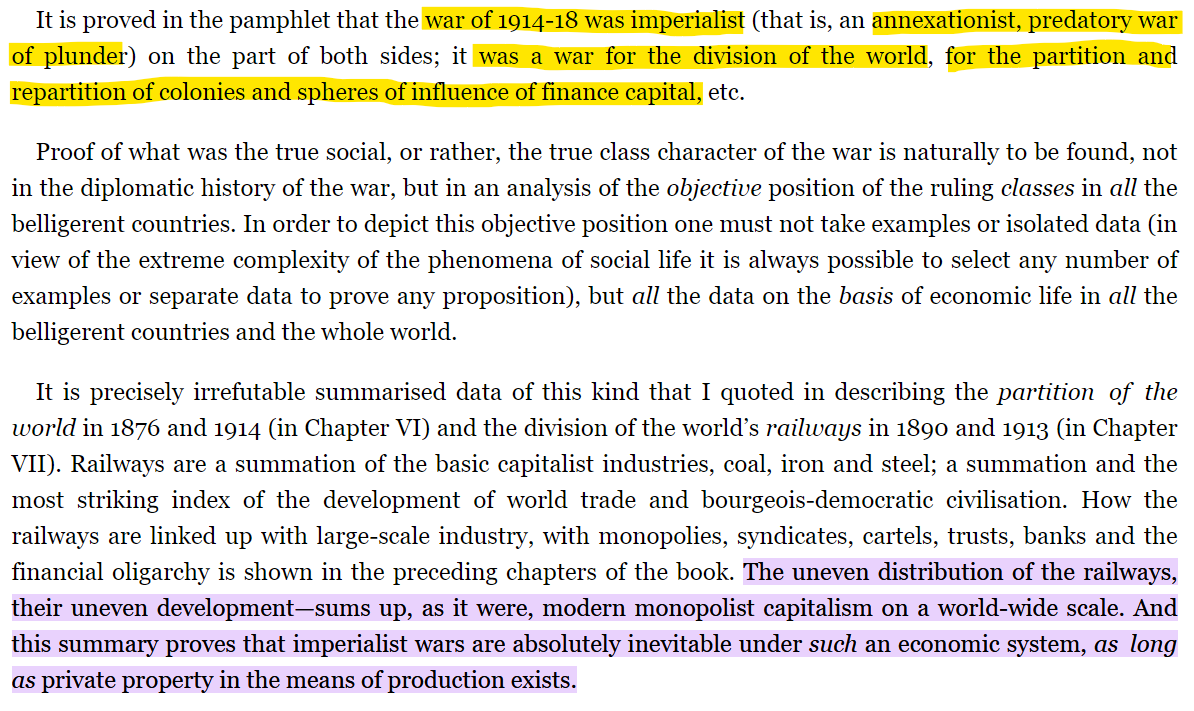Drishtikone Newsletter #345: Why does America Wage Wars?
America is considered the "most powerful country" and yet has lost almost all wars since World War II. Some very shamefully. But it still wages wars. Why? The Redistribution of Wealth!


“Bring something incomprehensible into the world!” ― Gilles Deleuze, A Thousand Plateaus: Capitalism and Schizophrenia
No society is ever secure without power.
Dominant power.
Those who are naive enough to bring human values into the arena of global geopolitics usually ensure the ruin of their own people.
But wars are no longer about winning victories for one's ideological stand or for security.
They are about the redistribution of power and wealth.
Wars are being staged, not because the ones who wage them are planning to win them.
But to create enough devastation and to pump in money from taxpayers, and from the colonized, to eventually get them into the hands of a few.
When we look at America, we see a huge military-industrial empire. And we see a trigger-happy establishment constantly on the move to wage wars. But a country with a shameful history of losing wars! Some in which they had to flee from the war zone because they had no option!
So then, why does America still force wars around the world?
Victim card by the Elite
IN February 2022, the National Defense Industrial Association (NDIA) said in its report that the shutdowns and supply chain disruptions had put the defense industrial base in danger and that may compromise the national security and military readiness of the United States. In fact, the report (download link) gave the defense industrial base's overall health and readiness a "failing grade".
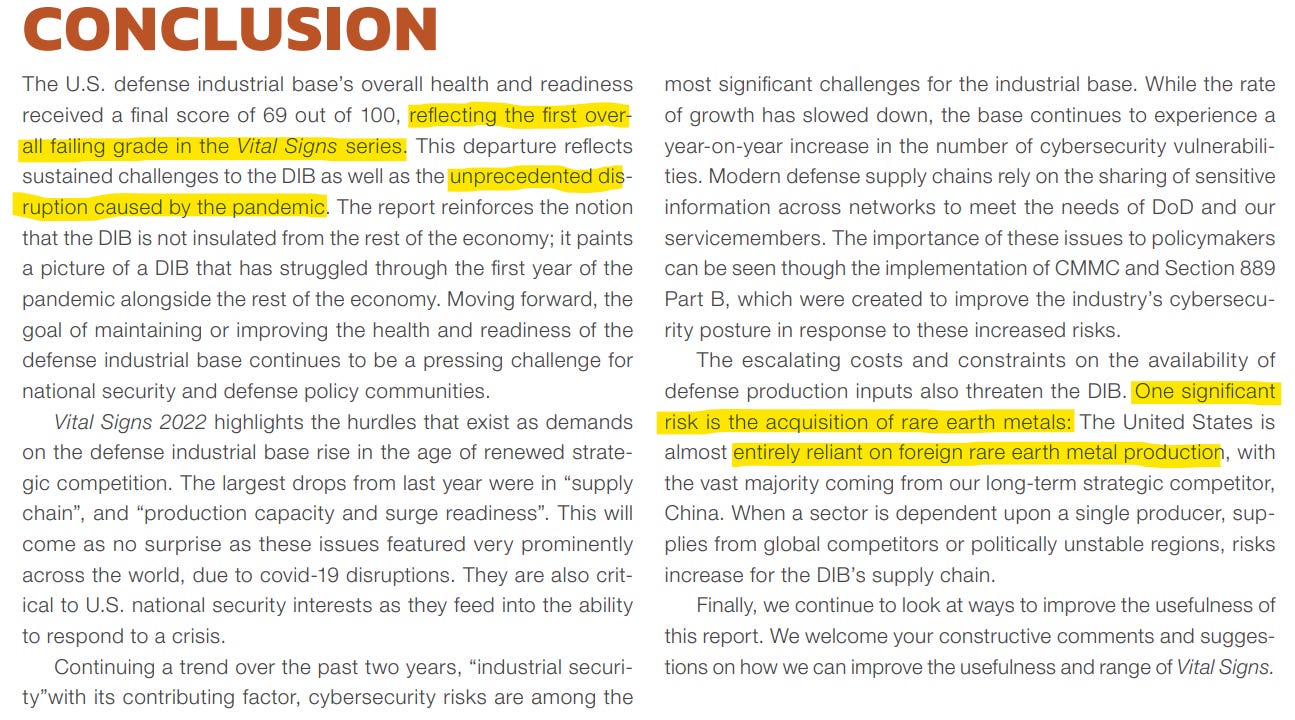
Given the perilous situation that the US arms situation is in, the NDIA on behalf of the arms manufacturers demanded: "rapid public investments to bolster the capacity of US and NATO."
It was almost as if they were talking about some essential industry, say education or health, as opposed to arms required to wage wars.
Heck, the government deemed the defense industrial base as an "essential" industry! Even during the deadly COVID surges and shutdowns (Source). It was provided doles even from the pandemic package.
The weapons industry, as reliant on federal contracts as it is, has an obvious interest in making itself seem both vital for the country and somehow barely surviving. This logic has been remarkably effective at securing significant bailouts for the military industry during the pandemic. For example, section 3610 of the CARES Act — the $2.2 trillion pandemic relief package passed in March 2020—permitted the Pentagon to pay contractors unable to work because of Covid-19 closures, a measure that was extended three times and was aggressively backed by the NDIA and other military industry trade groups. Its entire premise rests on the idea that the weapons industry is so vital to national wellbeing that it must be provided its own, separate lifeboats. (Source)
So while the arms industry was getting all the largesse, it was calling for modernization of the industry with funding to come from the government. Or the American taxpayer!
The idea was to get bigger access to public money.
Foreign Quarrels and the Military-Industrial Complex
In Henry IV, Part 2, Act 4, Scene 5; King Henry IV tells Prince Henry (Source):
Therefore, my Harry,
Be it thy course to busy giddy minds
With foreign quarrels; that action, hence borne out,
May waste the memory of the former days.
American polity and establishment have found a golden goose - Wars. Around the world. As long as wars are on, and keep repeating, as Shakespeare suggested, the pot for the establishment will also be full.
The term of Military-Industrial complex was really coined by President Eisenhower.
President Dwight Eisenhower said in his farewell address on January 17, 1961.
A vital element in keeping the peace is our military establishment. Our arms must be might, ready for instant action, so that no potential aggressor may be tempted to risk his own destruction. . . . American makers of plowshares could, with time and as required, make swords as well. But now we can no longer risk emergency improvisation of national defense; we have been compelled to create a permanent armaments industry of vast proportions. . . . This conjunction of an immense military establishment and a large arms industry is new in the American experience. . . .Yet we must not fail to comprehend its grave implications. . . . In the councils of government, we must guard against the acquisition of unwarranted influence, whether sought or unsought, by the military-industrial complex. The potential for the disastrous rise of misplaced power exists and will persist. (Source: US Government archives)
What is this complex?
Military-Industrial Complex: country's military and the defense industry that supplies it, are seen together as a vested interest that influences public policy
It works on only one principle.
Profit.
Let us take a look.
Afghanistan war: the gold-mine
The Afghanistan and Iraq wars defined the actions and decisions of the last 20 years by the US administrations - both Republican and Democrat.
In Iraq, the US bombed a country into oblivion and created the environment for ISIS, a scourge around the world, specifically in the Middle East. That created even more wars and the need for arms.
In Afghanistan, the US finally retreated in a hurry and basically handed over the country to the Taliban. The very force the US had come to defeat.
$290 million every day for 7,300 days. That’s how much money America spent on 20 years of war and nation-building in Afghanistan, according to Brown University’s Costs of War project. Yet it took just nine days for the Taliban to seize every provincial capital, dissolve the army and overthrow the U.S.-backed government in August. When Taliban fighters seized Kabul without firing a single shot, President Joe Biden blamed Afghans for failing to defend their country. (Source: CNBC)
Result: Defeat!
But was it?
The amount spent on these wars was obscene! $5.8 Trillion by one account!
The U.S. government has never provided a full accounting of the costs of America’s so-called “forever wars” in Afghanistan and Iraq. But researchers at Brown University estimate that the U.S. has spent $5.8 trillion on the war in Afghanistan and other conflicts stemming from the Sept. 11, 2001 attacks. That includes direct and indirect spending on everything from military equipment to homeland security to death gratuities for the families of slain American service members. The war in Afghanistan has cost $2.3 trillion so far, according to Wednesday’s release from Brown University’s Costs of War Project. That does not include the massive airlift the Biden administration conducted to evacuate 123,000 people from Afghanistan before the final U.S. military forces left on Monday. Some costs – such as ongoing medical care for veterans – will continue even though the U.S. military presence in Afghanistan has ended. (Source: USA Today)
Here is the report from Brown University.
Costs of War US Budgetary Costs of Post 9 11 Wars 9121
Costs of War_U.S. Budgetary Costs of Post-9 11 Wars_9.1.21.pdf
The total cost will be much higher by 2050.
Most of these funds were appropriated using the “emergency” and “contingency” funding that circumvented the normal budget process. Result was that the spending oversight was minimal and it was kept on with the pretense that the wars were "short term" and about to end.
It was an era of "endless money" in the Pentagon and Defense. The US Defense spending and budget more than doubled between 2001 and 2019 from $331.81 Bn to $731.75 Bn!
So who was paying for it?
The American taxpayer.
Where was the money going? All those $5 trillion of them?
Until 2021, the Defense contractors outnumbered the US troops 3-to-1!
Defense Department contractors in Afghanistan still outnumber U.S. troops by a 3-to-1 margin according to new research released this week, raising questions again about the role those workers play in the ongoing wars overseas and the oversight they receive. The data, compiled by the Congressional Research Service and first reported by Politico, shows contractor numbers in both Iraq and Afghanistan dating back to fiscal 2007. Combined, the Defense Department spent more than $220 billion on contractors in both war zones for a variety of services and support.
The numbers show that the non-military defense workers have outnumbered U.S. troops in Afghanistan continuously since mid-2011, even as the numbers of both have drawn down steadily. But the ratio between the two groups continues to widen as administration officials work to reduce the roles played by armed military personnel in the war-torn country. (Source: Military times)
So, as the surreptitiously appropriated money for the war effort and Pentagon budget rose, the stocks for Defense Sector rose as much!
How was this achieved?
Lobbying.
The defense manufacturing companies lobbied (fancy word for paying the Congressmen and women) by spending over $2.4 bn since 2001.
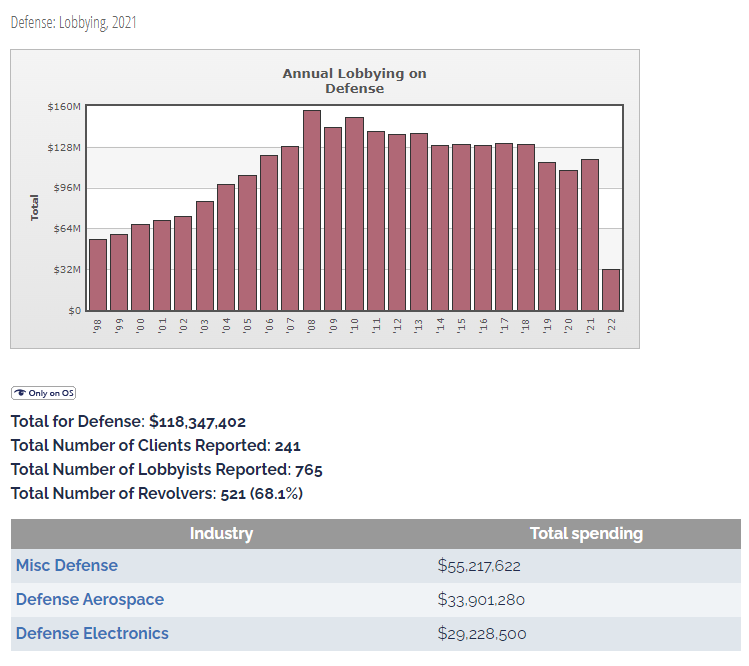
That lobbying keeps going on. If one set of wars end, new frontiers will open up.
In the first three quarters of 2021, the defense industry spent $98.9 million on lobbying, which is the highest number since 2013. These efforts have been largely fruitful for defense companies, as the United States plans to spend more than $770 billion on defense in 2023 — with over half of this budget going to arms spending. Through increased profits and lobbying, arms dealers have gained legislative powers despite being an outside interest group. (Source: Carolina Political Review)
And, they did.
In May, Biden signed a $40 billion aid package for Ukraine and it is only to support Ukraine until September! On May 19, the Senate overwhelmingly approved the bill (Source: NYT)
In March, the Pentagon ordered roughly 12,000 troops to the continent, bringing the total U.S. presence in Central and Eastern Europe from 60,000 personnel to more than 100,000. Earlier this month, Army Gen. Mark Milley, the chairman of the Joint Chiefs of Staff, advised that the U.S. deploy yet more troops and develop additional bases in the region. Meanwhile, Congress and President Biden have already allocated $13.6 billion in aid to Ukraine, nearly half of which is termed “lethal”: $6.5 billion to fund arms for Ukraine and the aforementioned troop deployment. On Thursday, Biden asked Congress for an additional $33 billion in aid, $20 billion of which would “provide weapons to Ukraine, replenish U.S. arms stockpiles, and help other countries shift away from a dependence on Russian weapons,” NPR reported. (Source: Quincy Institute)
The Military-Industrial base is ready to make more profits from Ukraine.
US arms manufacturers are not cashing in directly from the thousands of missiles, drones and other weapons being sent to Ukraine, but they do stand to profit big-time over the long run by supplying countries eager to boost their defenses against Russia. Like other Western countries, the United States has turned to its own stocks to furnish Ukraine with shoulder-fired Stinger and Javelin missiles, for instance. These weapons from Lockheed-Martin and Raytheon Technologies were paid for some time ago. So these companies' first quarter results, due to be released in coming weeks, should not be especially fatter because of the rush to arm Ukraine as it fights off the Russian invasion. But those US military weapons stockpiles being tapped for Kyiv will need to be replenished. The Pentagon plans to use $3.5 billion earmarked for this purpose in a spending bill approved in mid-March, a Defense Department spokesman told AFP. The Javelin anti-tank missile is made by a joint venture between Lockheed and Raytheon. The latter's Stinger anti-aircraft missile had ceased to be produced until the Pentagon ordered $340 million of them last summer. "We are exploring options to more quickly replenish US inventories and backfill depleted stocks of allies and partners," the spokesman said. "It will take time to revive the industrial base -- at the prime and at sub-tier suppliers -- to enable production to resume," he added. (Source: France24)
Take time to revive the industrial base? After the $5.8 trillion that the taxpayer just paid to these defense contractors?
The fact is that this merry-go-round ensures that the US has a militarized foreign policy always.
Defense industry profits do not simply disappear into the pockets of executives and shareholders. They are deployed strategically to build support for a highly militarized form of US foreign policy. Their methods are diverse, and formal lobbying through registered agents is just the tip of the iceberg. Defense firms finance think tanks and research agendas to provide policy papers for legislators and their staffers who are arguing for military intervention; they place their executives and allies on the National Security Council and other agencies via formal industry exchange programs; and they use their privileged regulatory position to steer the priorities of finance capital in the direction of investing more money in weapons technologies. The frequency of US wars and the fortunes of the weapons industry move in tandem; as the industry has become unassailable and immune to demands for belt-tightening or rationalization, so the United States finds itself in a state of forever war. Severing this deadly linkage, which has brutalized those abroad while immiserating Americans at home, is key to winding down the US imperial project. (Source: Middle East Research and Information Project)
This means that taxpayer money is pushed towards the defense sector when it could have gone elsewhere.
The proponents argue that after all pumping money into the Defense sector creates jobs. It is a spurious argument. The Defense sector is by FAR the worst one to create jobs.
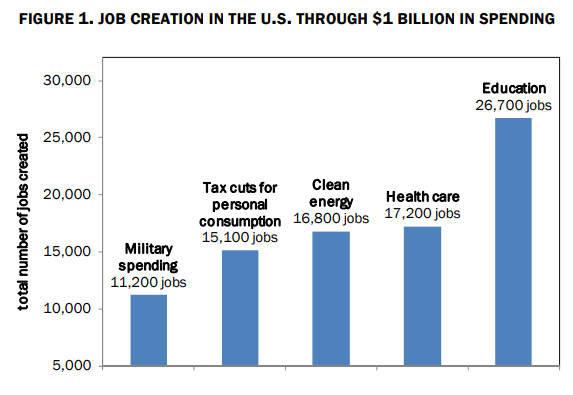
So why the military spending?
Imperialism, Capitalism, and Wars
Vladimir Lenin, the Soviet founder, said in "Imperialism, the Highest Stage of Capitalism", that "imperialist wars are absolutely inevitable under such an economic system (monopolistic Capitalism)."
While Lenin was not the greatest statesman or astute at economic structures of countries (see where USSR ended), but he has a point about how the wars by imperialist forces were predatory wars and fundamentally annexationist in nature.
The fact is that quite like the warning of President Eisenhower, the Military-Industrial complex has come to define the overall US foreign policy by bankrolling (buying?) the lawmakers on both sides in the US Congress.
Conundrum: Most Powerful Military which loses all wars!
We all know that the US is the most powerful country with the greatest defense spending, the most sophisticated defense manufacturers, and top research talent and infrastructure.
Then it would stand to reason that it should be kicking the ass of its enemy in every war.
Right? Wrong!!
Look at some of the wars the US has fought since World War II.
Korea, Vietnam, Gulf War, Iraq, and Afghanistan.
Korean and Vietnam Wars were major defeats for the US (Source). Everyone remembers the "last helicopter" on which the Americans had to flee.
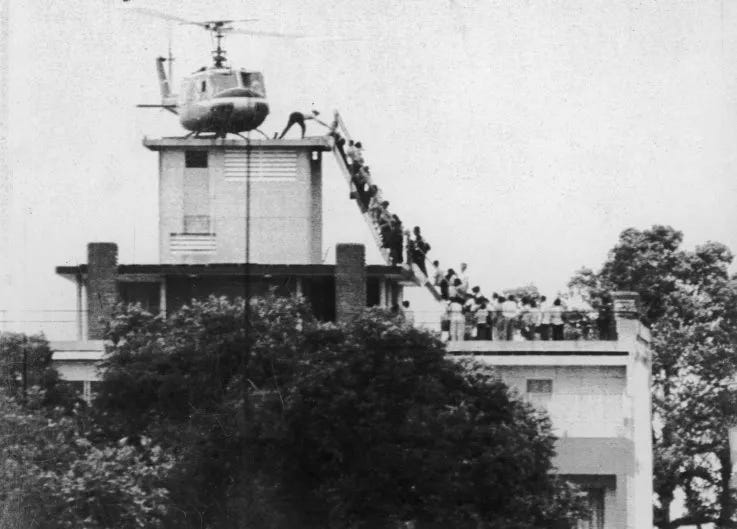
Iraq and its predecessor Gulf War may have been "successes" in how the US pounded the country into submission and total devastation, but that situation has created ISIS. Anthony H. Cordesman says in an article on the Center for Strategic and International Studies site that America snatched defeat from the jaws of victory in Iraq and the Middle East.
At the same time, focusing on the current crisis has now led to consistent failures in the U.S. strategy when dealing with Iraq and the Middle East for the last two decades – and has already turned two apparent “victories” into real world defeats. From the fall of Saddam Hussein in 2003 to the present, the United States has never had a workable grand strategy for Iraq or any consistent plans and actions that have gone beyond current events. (Source)
Afghanistan was basically not very different from Vietnam. When the US left, the government left thousands of its citizens stranded behind. (Source)
The State Department believes as many as 14,000 U.S. legal permanent residents remain in Afghanistan, Foreign Policy has learned, as the agency faces increasing scrutiny from Congress about the status of U.S. citizens and green card holders that are still stranded in the Taliban-controlled country. (Source: Foreign Policy)
When the Taliban took over, the failure was spectacular. (Source: New Yorker)
Isn't that odd?
So why do Americans get involved in wars with such a shameful and abysmal record at all?
The only reason one can think of is that it has nothing to do with wars or winning at all.
The Defense Industry needs to keep making money. So it will enroll the leadership - President, Senate, and the House - to do its bidding and keep financing them.
How do these politicians help?
By identifying and pursuing war targets. Create tensions in the lucrative hot spots or invent wars. And then bring in some allies and run a war by proxy or remote manner while pushing some troops (mainly contractors) on the ground!
American Establishment and the Military-Industrial Complex work as one.
To destroy countries and play with the lives of millions while pocketing profits for the few in the American establishment,
More importantly, for the Americans, this clique takes money from ordinary taxpayers and gives it to powerful defense companies, contractors, and politicians.
It is the biggest fraud being run on the Americans and the world!
Video Corner: The Last Persian Shah
It is important to understand how things changed in certain countries to place those people and societies where they are today. Watch this video, it is very informative.
If you like our content and value the work that we are doing, please do consider contributing to our expenses. CHOOSE THE USD EQUIVALENT AMOUNT you are comfortable with.
If you like this post - please share it with someone who will appreciate the information shared in this edition.
Today’s ONLINE PAPER: Check out today’s “The Drishtikone Daily” edition. - THE DRISHTIKONE DAILY




